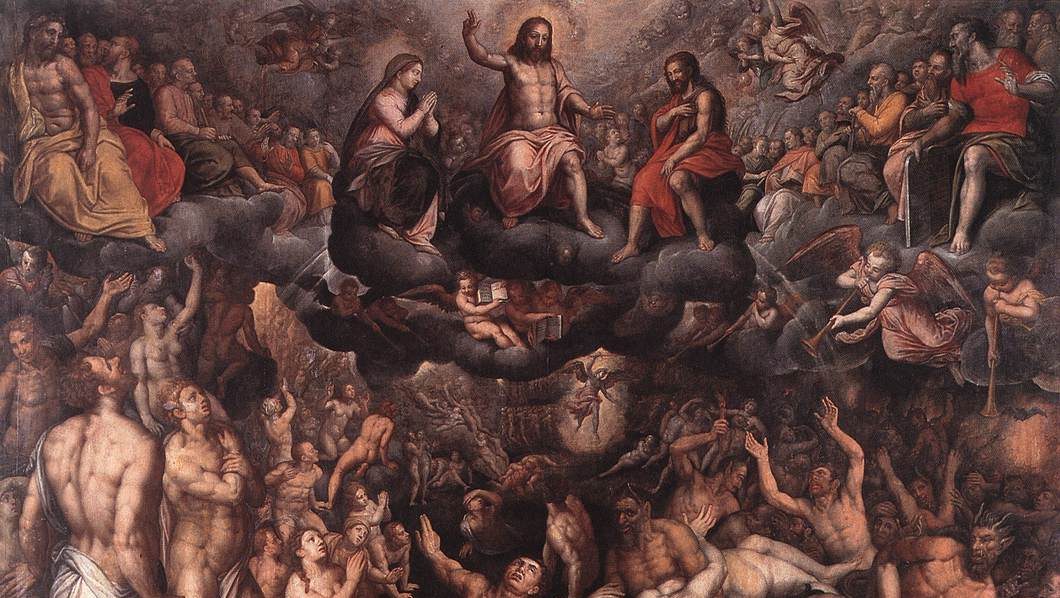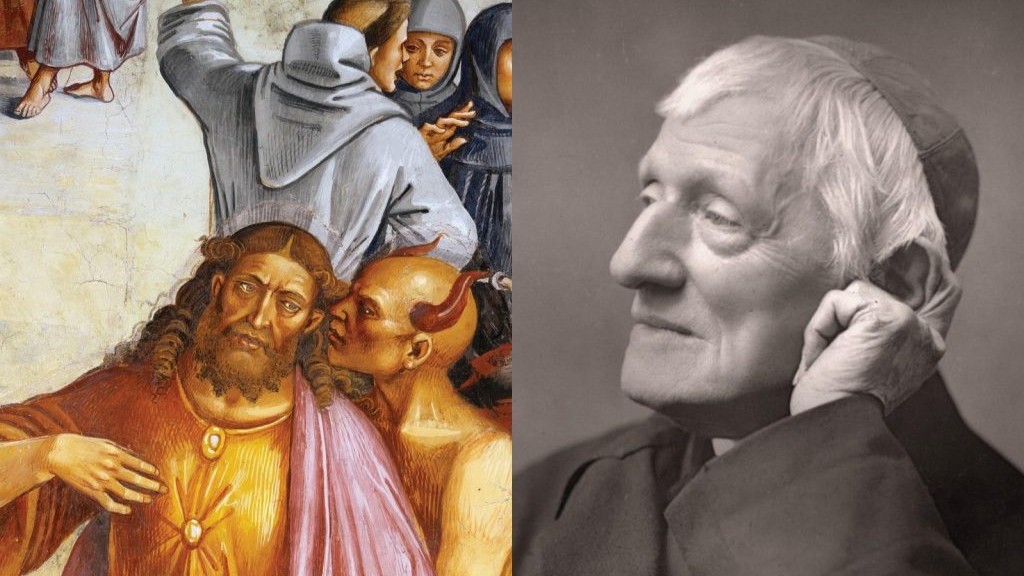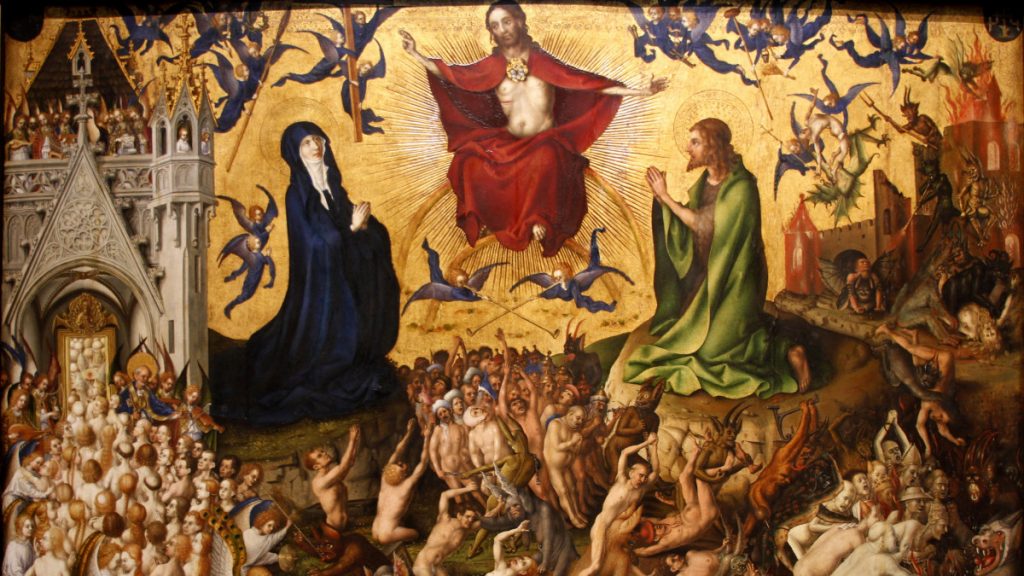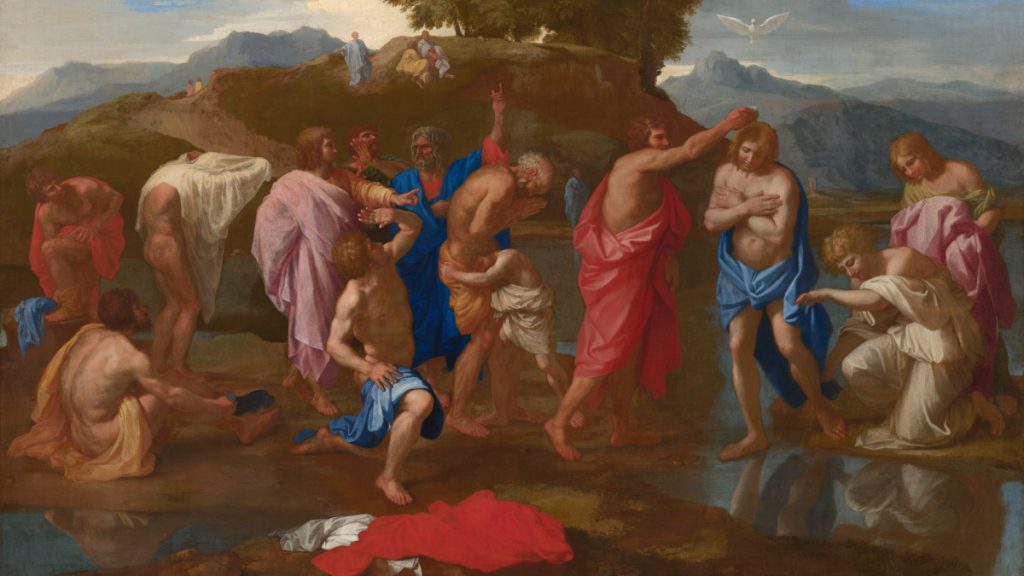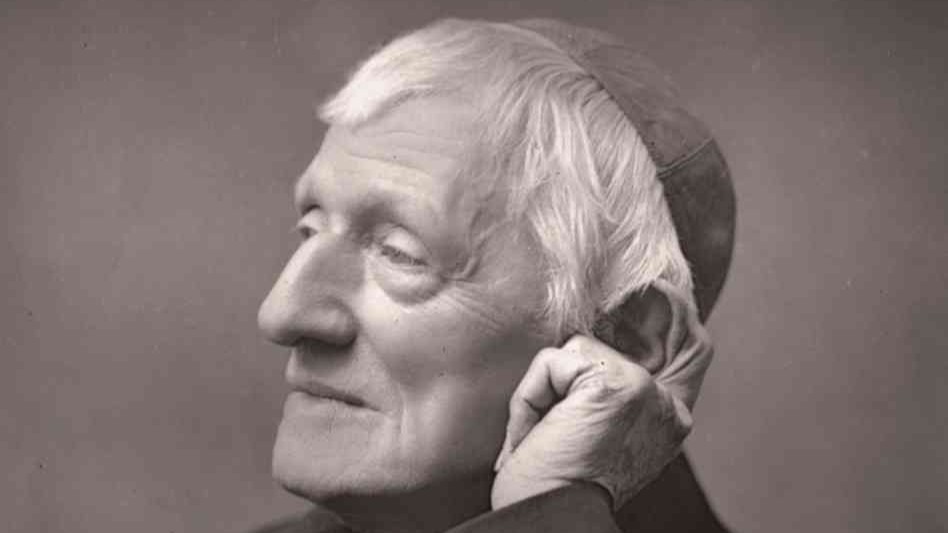(Updated April 11, 2025)
This Quote Archive is on Mortal Sin: Christians Can Lose Their Salvation. Each Archive is a treasury of original source quotes on various topics relevant to the Catholic Faith, and addressed in Becoming Catholic articles. They are intended to help people explore the “gold, silver, and precious gems” that have been mined and sifted from the sources of the Great Tradition by Eternal Christendom as a labor of love for our readers, and all seekers of Truth. They are periodically updated as more research is completed.
St. Ignatius of Antioch (died c. 107) | EAST
St. Ignatius of Antioch, Letter to the Ephesians (c. 107)
And pray without ceasing on behalf of other men. For there is in them hope of repentance that they may attain to God…let us seek to be followers of the Lord (who ever more unjustly treated, more destitute, more condemned?), that so no plant of the devil may be found in you, but you may remain in all holiness and sobriety in Jesus Christ, both with respect to the flesh and spirit.
St. Justin Martyr (c. 100-165) | EAST
St. Justin Martyr, quoted by St. Irenaeus of Lyons, Against Heresies (c. 153)
Truly has Justin remarked: That before the Lord’s appearance Satan never dared to blaspheme God, inasmuch as he did not yet know his own sentence, because it was contained in parables and allegories; but that after the Lord’s appearance, when he had clearly ascertained from the words of Christ and His apostles that eternal fire has been prepared for him as he apostatized from God of his own free-will, and likewise for all who unrepentant continue in the apostasy, he now blasphemes, by means of such men, the Lord who brings judgment [upon him] as being already condemned, and imputes the guilt of his apostasy to his Maker, not to his own voluntary disposition…
St. Irenaeus of Lyon (c. 130-c. 202) | EAST/WEST
St. Irenaeus of Lyons, Against Heresies (c. 180)
The Church, though dispersed throughout the whole world, even to the ends of the earth, has received from the apostles and their disciples this faith: [She believes] in one God, the Father Almighty, Maker of heaven, and earth, and the sea, and all things that are in them; and in one Christ Jesus, the Son of God, who became incarnate for our salvation; and in the Holy Spirit, who proclaimed through the prophets the dispensations of God, and the advents, and the birth from a virgin, and the passion, and the resurrection from the dead, and the ascension into heaven in the flesh of the beloved Christ Jesus, our Lord, and His [future] manifestation from heaven in the glory of the Father to gather all things in one [Eph. 1:10], and to raise up anew all flesh of the whole human race, in order that to Christ Jesus, our Lord, and God, and Savior, and King, according to the will of the invisible Father, every knee should bow, of things in heaven, and things in earth, and things under the earth, and that every tongue should confess [Phil. 2:10-11] to Him, and that He should execute just judgment towards all; that He may send spiritual wickednesses [Eph. 6:12], and the angels who transgressed and became apostates, together with the ungodly, and unrighteous, and wicked, and profane among men, into everlasting fire; but may, in the exercise of His grace, confer immortality on the righteous, and holy, and those who have kept His commandments, and have persevered in His love, some from the beginning [of their Christian course], and others from [the date of] their repentance, and may surround them with everlasting glory.
Tertullian (c. 155-c. 220) | WEST
Tertullian, Repentance (c. 203)
Yet most men either shun this work [confession], as being a public exposure of themselves, or else defer it from day to day. I presume (as being) more mindful of modesty than of salvation; just like men who, having contracted some malady in the more private parts of the body, avoid the privity of physicians, and so perish with their own bashfulness. It is intolerable, forsooth, to modesty to make satisfaction to the offended Lord! To be restored to its forfeited salvation! Truly you are honorable in your modesty; bearing an open forehead for sinning, but an abashed one for deprecating! I give no place to bashfulness when I am a gainer by its loss; when it exhorts the man, “Respect not me; it is better that I perish through you than you through me.”…Is it better to be damned in secret than absolved in public? But you say, “It is a miserable thing thus to come to exomologesis [penitential rite]”; yes, for evil does bring to misery; but where repentance is to be made, the misery ceases, because it is turned into something salutary. Miserable it is to be cut, and cauterized, and racked with the pungency of some (medicinal) powder: still, the things which heal by unpleasant means do, by the benefit of the cure, excuse their own offensiveness, and make present injury bearable for the sake of the advantage to supervene.
Tertullian, On Modesty (c. 220)
Discipline governs a man, power sets a seal upon him, apart from the fact that power is the Spirit, but the Spirit is God. What did the Spirit teach? That there must be no communicating with the works of darkness. Observe what he says. Who, moreover, was able to forgive sins? This is his prerogative alone: for “who remits sin but God alone?” And, of course, (who but he can remit) mortal sins, such as those committed against himself, and against his temple [the Church]?…
Origen (c. 184-c. 253) | EAST
Origen, Commentary on the Gospel of Matthew
But observe here that every great sin is a loss of the talents of the master of the house, and such sins are committed by fornicators, adulterers, abusers of themselves with men, effeminate, idolaters, murderers…
St. Cyprian of Carthage (c. 210-258) | WEST
St. Cyprian of Carthage, Letter 6: To Rogatianus the Presbyter, and the Other Confessors (250)
Yet I exhort you by our common faith, by the true and simple love of my heart towards you, that, having overcome the adversary in this first encounter, you should hold fast your glory with a brave and persevering virtue. We are still in the world; we are still placed in the battlefield; we fight daily for our lives. Care must be taken, that after such beginnings as these there should also come an increase, and that what you have begun to be with such a blessed commencement should be consummated in you. It is a slight thing to have been able to attain anything; it is more to be able to keep what you have attained; even as faith itself and saving birth makes alive, not by being received, but by being preserved. Nor is it actually the attainment, but the perfecting, that keeps a man for God. The Lord taught this in His instruction when He said, “Behold, you are made whole; sin no more, lest a worse thing come unto you” (John 5:14). Conceive of Him as saying this also to His confessor, “Lo you are made a confessor; sin no more, lest a worse thing come unto you.” Solomon also, and Saul, and many others, so long as they walked in the Lord’s ways, were able to keep the grace given to them. When the discipline of the Lord was forsaken by them, grace also forsook them.
St. Cyprian of Carthage, Treatise 3: On the Lapsed (251)
(§28) Moreover, how much are they both greater in faith and better in their fear, who, although bound by no crime of sacrifice to idols or of certificate, yet, since they have even thought of such things, with grief and simplicity confess this very thing to God’s priests, and make the conscientious avowal, put off from them the load of their minds, and seek out the salutary medicine even for slight and moderate wounds, knowing that it is written, “God is not mocked” (Gal. 6:7). God cannot be mocked, nor deceived, nor deluded by any deceptive cunning. Yea, he sins the more, who, thinking that God is like man, believes that he evades the penalty of his crime if he has not openly admitted his crime…
(§29) I entreat you, beloved brethren, that each one should confess his own sin, while he who has sinned is still in this world, while his confession may be received, while the satisfaction and remission made by the priests are pleasing to the Lord. Let us turn to the Lord with our whole heart, and, expressing our repentance for our sin with true grief, let us entreat God’s mercy. Let our soul lie low before Him. Let our mourning atone to Him. Let all our hope lean upon Him. He Himself tells us in what manner we ought to ask. “Turn to me,” He says, “with all your heart, and at the same time with fasting, and with weeping, and with mourning; and rend your hearts, and not your garments” (Joel 2:12). Let us return to the Lord with our whole heart. Let us appease His wrath and indignation with fastings, with weeping, with mourning, as He Himself admonishes us.
Firmilian of Cappadocia (died c. 269) | WEST
Firmilian of Cappadocia, Letter 74: To Cyprian, Against the Letter of St. Pope Stephen (256)
[B]y the sacrament of baptism, the filth of the old man is washed away by them, that they pardon the former mortal sins, that they make sons of God by heavenly regeneration, and renew to eternal life by the sanctification of the divine laver…
St. Pacian of Barcelona (c. 310-391) | WEST
St. Pacian of Barcelona, On Penitents (c. 387)
(Ch. 4, §§2-3)1
(§2) …But what shall he who is contemptuous of God do? What shall the blood-stained individual do? What remedy shall the fornicator have? Shall he who has abandoned the Lord be able to appease him? Or he who has shed another’s blood be able to preserve his own? Or he who has violated God’s temple by fornication be able to restore it? These, my brethren, are capital sins; these are mortal sins.
(§3) Now hear John and be confidence, if you can. “If anyone knows,” he says, “that his brother commits a sin which does not lead to death, let him entreat about this and the Lord shall give him life, if he has not committed a sin which leads to death. Indeed, there is a sin that leads to death: I do not say that you should pray about that” (1 John 5:16).
(Ch. 5, §1)2
But if it pleases you, listen also to what I say about each of these sins separately. God addresses Moses in the following manner when that man is praying for the people who had blasphemed. “Whoever has sinned against me,” he says, “I will delete from my book” (Ex. 32:33). And concerning the murderer, the Lord judges thus: “Whoever kills with the sword,” he says, “shall die by the sword” (Matt. 26:52; cf. Gen. 9:6; Ex. 21:12; Apoc. 13:10). And about the fornicator, the Apostle says, “Do not defile the temple of God, which temple you are; but he who defiles the temple of God, God shall destroy him” (1 Cor. 3:17).
(Ch. 6, §2)3
I appeal therefore first to you, my brethren, who, having 76 | 77 committed crimes refuse penance! You, I say, who are timid after being shameless, who are bashful after sinning! You who are not ashamed to sin, but are ashamed to confess! You who with an evil conscience touch the holy things of God and do not fear the altar of the Lord! You who approach the hands of the priest and who come within the sight of the angels [during the sacrifice of the Eucharist] with the boldness of innocence! You who insult the divine patience! You who bring to God a polluted soul and a profane body, as if, because God is silent, he does not know! Hear what the Lord has done, and then what he has said.
(Ch. 8)4
The Church is in the body and in the member; the Church, truly, is Christ. And so it happens that the person who is not silent about his sins before his brethren, when he is assisted by the tears of the Church, is absolved through the supplications of Christ.
St. Basil (330-379) | EAST
St. Basil, Letter 199: To Amphilochius, Concerning the Canons (375)
Clerics who are guilty of the sin unto death [1 John 5:16] are degraded from their order, but not excluded from the communion of the laity…
St. Jerome (c. 342/347-420) | EAST/WEST
St. Jerome, Against Jovinian (c. 393)
Some offenses are light, some heavy. It is one thing to owe ten thousand talents, another to owe a farthing. We shall have to give account of the idle word no less than of adultery; but it is not the same thing to be put to the blush, and to be put upon the rack, to grow red in the face and to ensure lasting torment. Do you think I am merely expressing my own views? Hear what the Apostle John says: “He who knows that his brother sins a sin not unto death, let him ask, and he shall give him life, even to him that sins not unto death. But he that has sinned unto death, who shall pray for him?” (1 John 5:16). You observe that if we entreat for smaller offenses, we obtain pardon: if for greater ones, it is difficult to obtain our request: and that there is a great difference between sins…
St. Augustine (354-430) | WEST
St. Augustine, Reply to Faustus the Manichaean (c. 400)
In fact, nothing could have been devised more likely to instruct and benefit the pious reader of sacred Scripture than that, besides describing praiseworthy characters as examples, and blameworthy characters as warnings, it should also narrate cases where good men have gone back and fallen into evil, whether they are restored to the right path or continue irreclaimable; and also where bad men have changed, and have attained to goodness, whether they persevere in it or relapse into evil; in order that the righteous may be not lifted up in the pride of security, nor the wicked hardened in despair of cure…
St. Augustine, On Rebuke and Grace (c. 426)
(Ch. 11, 13)
(Ch. 11) If, then, these things be so, we still rebuke those, and reasonably rebuke them, who, although they were living well, have not persevered therein; because they have of their own will been changed from a good to an evil life, and on that account are worthy of rebuke; and if rebuke should be of no avail to them, and they should persevere in their ruined life until death, they are also worthy of divine condemnation forever. Neither shall they excuse themselves, saying—as now they say, “Wherefore are we rebuked?”—so then, “Wherefore are we condemned, since indeed, that we might return from good to evil, we did not receive that perseverance by which we should abide in good?” They shall by no means deliver themselves by this excuse from righteous condemnation. For if, according to the word of truth, no one is delivered from the condemnation which was incurred through Adam except through the faith of Jesus Christ, and yet from this condemnation they shall not deliver themselves who shall be able to say that they have not heard the gospel of Christ, on the ground that “faith comes by hearing” (Rom. 10:17), how much less shall they deliver themselves who shall say, “We have not received perseverance!” For the excuse of those who say, “We have not received hearing,” seems more equitable than that of those who say, “We have not received perseverance”; since it may be said, O man, in that which you had heard and kept, in that you might persevere if you would, but in no wise can it be said, That which you had not heard you might believe if you would…
(Ch. 13) Whosoever, then, are made to differ from that original condemnation by such bounty of divine grace, there is no doubt but that for such it is provided that they should hear the gospel, and when they hear they believe, and in the faith which works by love they persevere unto the end; and if, perchance, they deviate from the way, when they are rebuked they are amended and some of them, although they may not be rebuked by men, return into the path which they had left; and some who have received grace in any age whatever are withdrawn from the perils of this life by swiftness of death…
St. Augustine, On the Predestination of the Saints (c. 428)
But of two pious men, why to the one should be given perseverance unto the end, and to the other it should not be given, God’s judgments are even more unsearchable. Yet to believers it ought to be a most certain fact that the former is of the predestinated, the latter is not. “For if they had been of us,” says one of the predestinated, who had drunk this secret from the breast of the Lord, “certainly they would have continued with us” (1 John 2:19). What, I ask, is the meaning of, “They were not of us; for if they had been of us, they would certainly have continued with us”? Were not both created by God—both born of Adam—both made from the earth, and given from Him who said, “I have created all breath,” souls of one and the same nature? Lastly, had not both been called, and followed Him that called them? And had not both become, from wicked men, justified men, and both been renewed by the laver of regeneration [baptism]? But if he were to hear this who beyond all doubt knew what he was saying, he might answer and say: These things are true. In respect of all these things, they were of us.
St. Augustine, City of God (c. 413-26)
And therefore neither ought such persons as lead an abandoned and damnable life to be confident of salvation, though they persevere to the end in the communion of the Catholic Church, and comfort themselves with the words, “He that endures to the end shall be saved” (Matt. 24:13). By the iniquity of their life they abandon that very righteousness of life which Christ is to them, whether it be by fornication, or by perpetrating in their body the other uncleannesses which the apostle would not so much as mention, or by a dissolute luxury, or by doing any one of those things of which he says, “They who do such things shall not inherit the kingdom of God” (Gal. 5:21). Consequently, they who do such things shall not exist anywhere but in eternal punishment, since they cannot be in the kingdom of God. For, while they continue in such things to the very end of life, they cannot be said to abide in Christ to the end; for to abide in Him is to abide in the faith of Christ. And this faith, according to the apostle’s definition of it, “works by love” (Gal. 5:6). And “love,” as he elsewhere says, “works no evil” (Rom. 13:10).
St. Caesarius of Arles (c. 468/470-542) | WEST
St. Caesarius of Arles, Sermon 10: On the Catholic Faith
(§3)5
Let no one commit theft or murder or adultery or perjury, or bear false witness. Every man should honor his father and mother that he may live long on earth. Let him cherish God more than himself and love his neighbor as himself. If anyone has committed any of the aforementioned offenses, he should quickly amend his life, make his confession, perform true penance, and then his sins will be forgiven him. If you are willing to do what I have suggested, brethren, you will merit pardon for your sins and obtain eternal life: with the help of our Lord Jesus Christ, who lives and reigns world without end. Amen.
St. Caesarius of Arles, Sermon 16: The Qualities of Good and Bad Christians
(§4)6
Behold, brethren, we are showing you the qualities of good Christians and of bad. Therefore, imitate those whom you see are good; those whom you know are evil, reprimand, reproach, and rebuke them so that you may have a double reward for your own progress and their amendment. May those, then, who are good, chaste, sober, humble, and gentle, persevere with God’s help in their good works; may those who do evil correct themselves at once before their souls depart from this life. If they die without repentance they do not enter into life, but are cast into death. From this punishment may the good Lord deign to free us, who, together with the Father and the Holy Spirit, lives and reigns world without end. Amen.
Apostolic Era Documents
The Shepherd of Hermas (c. 80)
“And as many as have in the branches half-withered and cracked, hear also about them. They whose branches were half-withered to the same extent are the wavering; for they neither live, nor are they dead. And they who have them half-withered and cracked are both waverers and slanderers, [railing against the absent] and never at peace with one another, but always at variance. And yet to these also,” he continued, “repentance is possible. You see,” he said, “that some of them have repented, and there is still remaining in them,” he continued, “a hope of repentance. And as many of them,” he added, “as have repented, shall have their dwelling in the tower. And those of them who have been slower in repenting shall dwell within the walls. And as many as do not repent at all, but abide in their deeds, shall utterly perish. And they who gave in their branches green and cracked were always faithful and good, though emulous of each other about the foremost places, and about fame: now all these are foolish, in indulging in such a rivalry. Yet they also, being naturally good, on hearing my commandments, purified themselves, and soon repented. Their dwelling, accordingly, was in the tower. But if any one relapse into strife, he will be east out of the tower, and will lose his life. Life is the possession of all who keep the commandments of the Lord; but in the commandments there is no rivalry in regard to the first places, or glory of any kind, but in regard to patience and personal humility. Among such persons, then, is the life of the Lord, but among the quarrelsome and transgressors, death.”
Apostolic Teachings and Constitutions
Didache (c. 50)
(Ch. 16, §§1-2)7
(§1) “Be vigilant” over your life; “let your lamps” not be extinguished, or your loins be ungirded, but be prepared, for you know not the hour in which the Lord will come [Matt. 24:42, 44; Luke 12:35]. (§2) Come together frequently, and seek what pertains to your souls: for the whole time of your faith will not profit you, unless in the last hour you shall be found perfect [2 Pet. 3:3; Matt. 24:10; 7:15].
Footnotes
- St. Pacian of Barcelona, Orosius of Braga, Craig L. Hanson, trans., The Fathers of the Church, Vol. 99: Iberian Fathers, Vol. 3, Pacian of Barcelona, Orosius of Braga (Washington, DC: The Catholic University of America Press, 1999), 75. ↩︎
- St. Pacian of Barcelona, Orosius of Braga, Craig L. Hanson, trans., The Fathers of the Church, Vol. 99: Iberian Fathers, Vol. 3, Pacian of Barcelona, Orosius of Braga (Washington, DC: The Catholic University of America Press, 1999), 75. ↩︎
- St. Pacian of Barcelona, Orosius of Braga, Craig L. Hanson, trans., The Fathers of the Church, Vol. 99: Iberian Fathers, Vol. 3, Pacian of Barcelona, Orosius of Braga (Washington, DC: The Catholic University of America Press, 1999), 76-77. ↩︎
- St. Pacian of Barcelona, Orosius of Braga, Craig L. Hanson, trans., The Fathers of the Church, Vol. 99: Iberian Fathers, Vol. 3, Pacian of Barcelona, Orosius of Braga (Washington, DC: The Catholic University of America Press, 1999), 79. ↩︎
- St. Caesarius of Arles, Mary Magdaleine Mueller, O.S.F., trans., The Fathers of the Church, Vol. 31: Saint Caesarius of Arles, Sermons, Vol. 1 (1-80) (Washington, DC: The Catholic University of America Press, 2004), 61. ↩︎
- St. Caesarius of Arles, Mary Magdaleine Mueller, O.S.F., trans., The Fathers of the Church, Vol. 31: Saint Caesarius of Arles, Sermons, Vol. 1 (1-80) (Washington, DC: The Catholic University of America Press, 2004), 90. ↩︎
- Francis X. Glimm, Joseph M.F. Marique, SJ, Gerald G. Walsh, SJ, trans., The Fathers of the Church, Vol. 1: The Apostolic Fathers (Washington, DC: The Catholic University of America Press, 1947), 183. ↩︎
